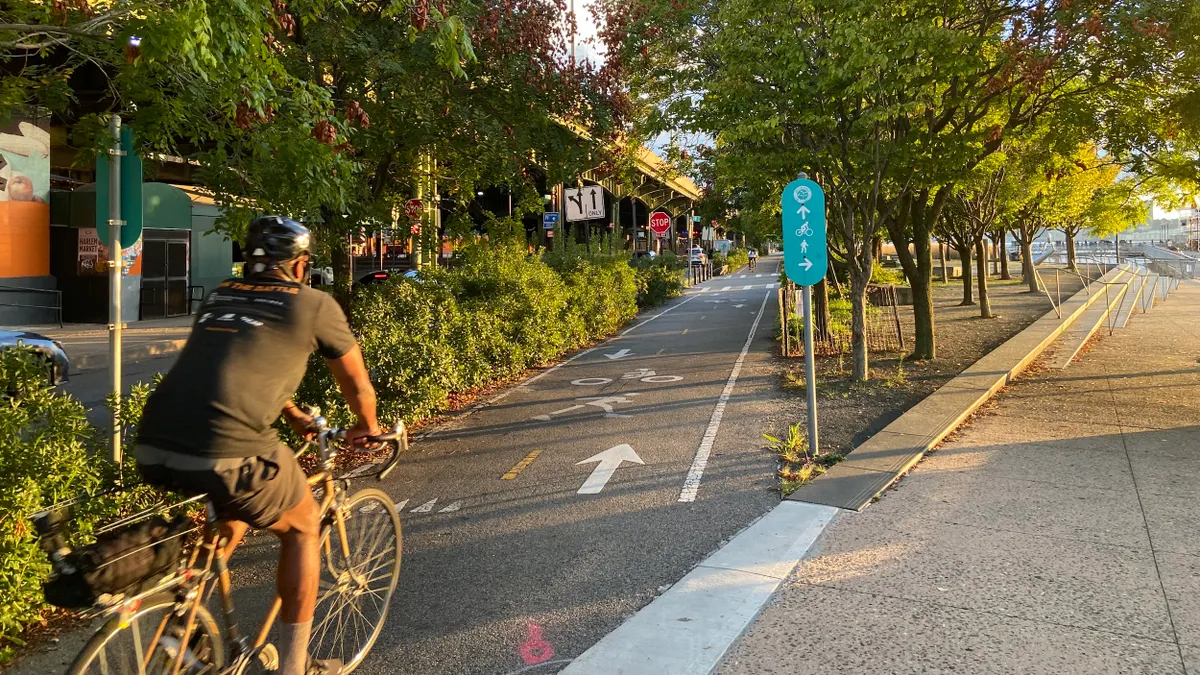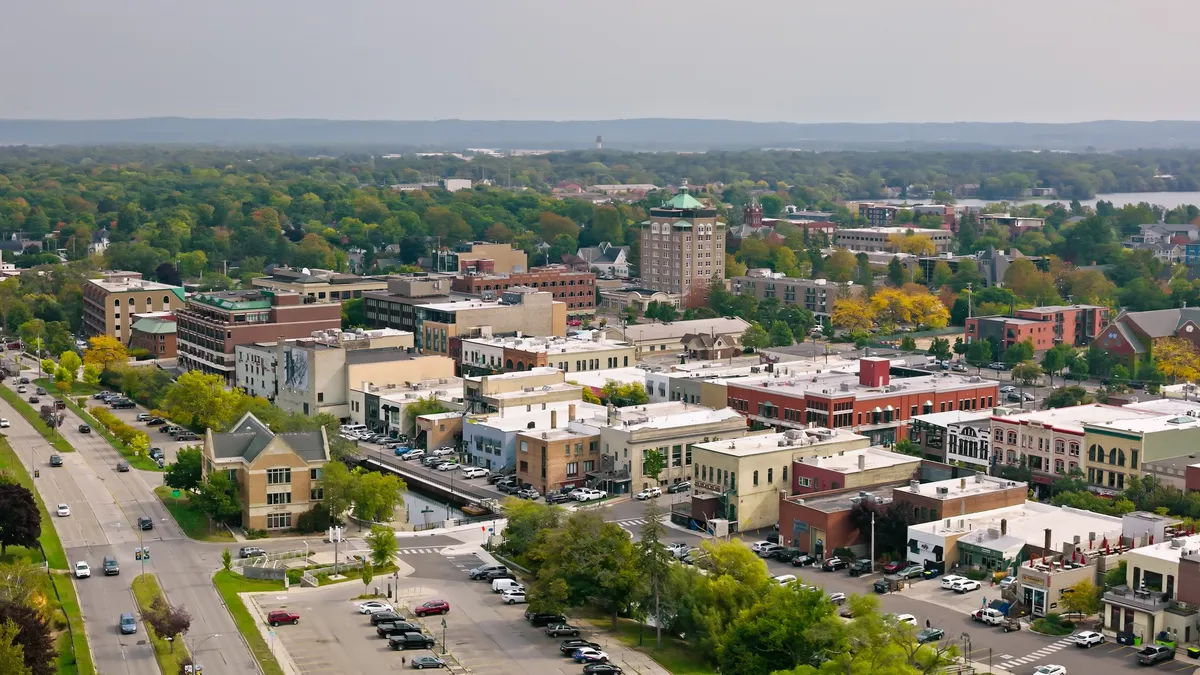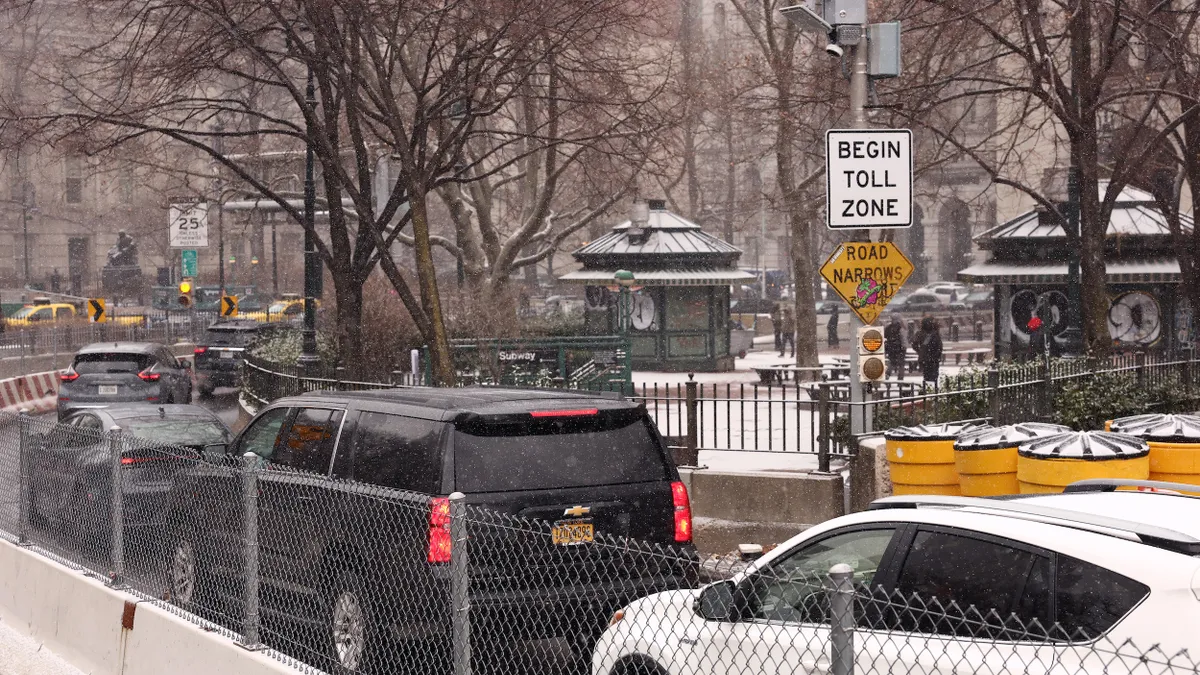For decades, economists have debated the benefits to cities of hosting major sporting events, whether it be the Summer or Winter Olympic Games, or the FIFA World Cup, which is currently building toward a climax in Russia.
In previous years, some World Cups have been criticized for leaving host cities and their residents on the hook for cost overruns on new stadiums and training facilities, as well as needing to pay for security while giving FIFA — world soccer’s governing body — enormous tax exemptions and other perks. That has led some to question the worth of hosting such an event, and whether cities should be left to pick up the tab.
But with the recently-announced 2026 tournament set to descend on North America, organizers have promised this one will be different, and be mostly reliant on already-existing infrastructure in cities.
"Hosting the 2026 FIFA World Cup is a rare and important moment to demonstrate that we are all truly united through sport," Carlos Cordeiro, president of the U.S. Soccer Federation (USSF) and co-chair of the United Bid, said in a statement.
With the 23 bidding host cities across Canada, Mexico and the U.S. set to be pared down to 16 or so in 2020 or 2021, there is plenty to be done between now and then for city leaders to show why they should make the final cut.
And while some have already withdrawn from contention, there appears to be plenty of enthusiasm among city leaders to show they are capable of hosting — with some going so far as to say they are ready now.
A settled squad: Cities emphasize existing infrastructure
A hallmark of the United Bid has been the host cities’ emphasis on existing infrastructure, both in terms of stadiums and training facilities, and the transportation infrastructure and hotel rooms that will be online by 2026.
That existing infrastructure led the Boston Consulting Group to estimate the tournament will create more than $5 billion in economic activity for the three host countries, with a net benefit between $3 billion and $4 billion when factoring in the associated costs. Individual cities could benefit by up to $480 million each, while around 40,000 jobs would be supported.
"United 2026 offers existing modern stadia with experienced management teams in each of our proposed host cities, and existing modern accommodation and integrated transport systems throughout our host cities," John Kristick, executive director of the United Bid Committee, said in a statement. "Our legacy is already in the ground, working, not on the drawing board giving our host cities and FIFA a level of certainty not seen in previous FIFA World Cups and allowing us to focus hosting the best event for the prosperity of FIFA."
The full bid, a 530-page book submitted to FIFA outlining all that Canada, Mexico and the U.S. has to offer, played up the fact that a great deal of infrastructure has already been built, especially the crucial area of transportation.
"Our legacy is already in the ground, working, not on the drawing board giving our host cities and FIFA a level of certainty not seen in previous FIFA World Cups and allowing us to focus hosting the best event for the prosperity of FIFA."

John Kristick
Executive Director, United Bid Committee
The last time the U.S. hosted the World Cup in 1994, around 3.5 million people descended on the country from all over the world to watch the games. Attendance figures have stayed consistent around that mark, but are sure to be higher with 48 teams to compete, a higher number than in previous tournaments.
Transporting fans will be perhaps the biggest headache for city leaders and tournament organizers, both around the host cities and between them. But according to the bid documents and city leaders’ public statements, there is a great deal of confidence they will do that with relative ease.
The bid touted the standard of the country’s airports, describing them as “some of the busiest, highest capacity and most modern facilities in the world." And in terms of other transportation modes, the bid acknowledged that a "higher level of transportation support" will be required given the sheer number of teams and fans traveling, but it "will utilize both private and public assets, existing transportation hubs and transit systems, emerging green mobility platforms and tools, cycle and walking networks, and more."
There have already been varying degrees of assurance expressed by potential host cities, with some saying they are ready to host and others noting there is plenty of work to be done. Baltimore received a score of 3 out of 5 from the bid committee for its transportation infrastructure, its lowest score across all the bidding categories.
In an interview with The Baltimore Sun, Terry Hasseltine, executive director of Maryland Sports and deputy chairman of the Baltimore-Maryland Host Organizing Committee, acknowledged "we still have a lot of work to do." Other leaders said they were excited at the opportunity and would work hard to be prepared.
Some cities have been more openly bullish about their transportation infrastructure, and their ability to cope with an influx of visitors. At a press conference after the United Bid’s win was announced, Seattle area officials said they will be able to cope despite well-documented traffic congestion and other issues.
King County, WA Executive Dow Constantine said the transit expansion in the Puget Sound region — which ballooned from $15 billion to $54 billion — will help. "That is going to be a tremendous advantage when we have that many people coming to our town to visit," Constantine said.
Tournament regulars: Leaders play up previous hosting experience
In addition to playing up their existing infrastructure, city leaders have also touted their experience at hosting major sporting and cultural events. And while no major international event comes close to the World Cup in terms of scale and attendance (other than the Olympics), some cities noted they have had something of a dry run.
Toronto officials emphasized that line of argument in a press conference after the announcement of the bid win, noting that the city hosted the Invictus Games for veterans in 2017 and the Pan-American and Parapan American Games in 2015. "I think we’ve shown as a city in terms of the infrastructure, the talent, the volunteers to put these things on properly, that we know how to do that," Toronto Mayor John Tory said at a press conference.
And Seattle Mayor Jenny Durkan played up the city’s hosting of the Special Olympics earlier this month, as well as the fact that other previous host cities have had to do far more to prepare. "I think that we’ll be ready by 2026," she said. "If you look at the history of the FIFA World Cup and where they get awarded, when it was awarded to Russia for example and Qatar [for the 2022 tournament], they’re far behind where we are as a city in Seattle, both in terms of a soccer culture and having facilities."
Meanwhile, Washington, DC has been keen to flex its muscles as a host capable of hosting major events — not only the visits of world leaders to the seat of federal power, but also the likes of the Washington Capitals’ victory parade after winning the NHL’s Stanley Cup and hosting the MLB All-Star Game this month.
The Washington Business Journal reports the city has already started pitching itself as a possible host of a semifinal match. "As the world saw this past week, Washington, DC is a city of champions — one that has a has a long-standing history of hosting global events and creating unforgettable memories," Mayor Muriel Bowser said in a statement.
Dream team: Partnerships, diversity key
Thinking about solving problems on a regional basis has been a key point of emphasis for cities as they look to become smarter, and it is no different for those that have their eye on hosting World Cup matches in 2026.
This is no more apparent than in Kansas and Missouri, where Kansas City is regarded as a major player in the American soccer landscape thanks to the on-field efforts of Sporting Kansas City, while the city has designs on being a World Cup host. "Two cities, two states, two teams, and really we’re setting that example across America," said Kathy Nelson, CEO of the Greater Kansas City Sports Commission, at a press conference.
Kansas City, KS Mayor Mark Holland said hosting the tournament would help build soccer fandom "from our neighborhoods up," and give the city the "unity to join together and showcase the power of our people." And Kansas City, MO Mayor Sly James said an equitable approach is key, especially when it comes to making use of legacy projects after the tournament has left.
"We always need to remember that when we do these big things, we must look at them in terms of equity," James said. "If we’re going to have this huge opportunity, then we need everybody to be able to participate in it."
While also thinking regionally, cities are already looking to upper levels of government for support and partnerships, especially in Canada where the federal and provincial governments are regarded as major players. At his press conference, Tory said Toronto is "counting on the other governments" in what will likely be a "shared endeavor," as it has been in the past.
Cities show FIFA an early red card
The process to be part of the United Bid has not been without incident however, as multiple cities withdrew from consideration as potential hosts over concerns they had, primarily about working with FIFA.
World soccer’s governing body has traditionally made a long list of demands and expectations of cities that host its showpiece event, much like the International Olympic Committee (IOC) does for the Olympics. In 2014, for example, Norway withdrew its capital city Oslo from consideration to host the 2022 Winter Olympics for what it considered unreasonable demands from the IOC, including creating separate travel lanes on streets to be used only by IOC delegates and VIPs.
FIFA made demands of its host cities during the 2026 bidding process that some felt were burdensome, including a tax exemption from host governments and for those host governments to assume all responsibility and costs for hosting games, security and related events like the Fan Fests that take over public spaces.
And it was the finances of the operation that led three U.S. cities — Chicago, Minneapolis and Glendale, AZ — to withdraw from consideration, as leaders said they did not feel comfortable assuming unknown costs that could rise and later be borne by their taxpayers, rather than by FIFA or by the USSF. "The uncertainty for taxpayers, coupled with FIFA’s inflexibility and unwillingness to negotiate, were clear indications that further pursuit of the bid wasn’t in Chicago’s best interests," Chicago Mayor Rahm Emanuel said in a statement through a spokesman at the time.
It was a similar story for Vancouver, which submitted a bid along with other Canadian cities to host games but was rejected after British Columbia’s provincial government raised concerns about what British Columbia (BC) tourism minister Lisa Beare told reporters were the "unknown costs and unknown risks to BC taxpayers."
"We can’t write a blank check to FIFA, and we won’t put BC taxpayers on the hook for something that we can’t confirm," she added.
British Columbia Premier John Horgan echoed those remarks, having come in for some criticism from some quarters, and said that fiscal responsibility would mean that neither Vancouver, the provincial nor federal government could be expected to make up any shortfalls in funding.
"I don’t think those same British Columbians would have wanted me to sign a check away for something that will happen eight years from now without absolute confidence in what the final bill is going to be," Horgan said.


















